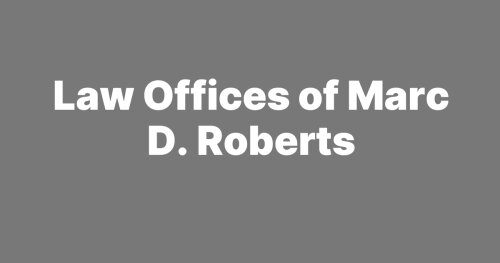Best Criminal Defense Lawyers in Kansas
Share your needs with us, get contacted by law firms.
Free. Takes 2 min.
Or refine your search by selecting a city:
List of the best lawyers in Kansas, United States
United States Criminal Defense Legal Questions answered by Lawyers
Browse our 1 legal question about Criminal Defense in United States and read the lawyer answers, or ask your own questions for free.
- Do you prosecute local Philippina for violating ESTAFA laws
- I was scammed by a lady presenting herself as my girlfriend.
-
Lawyer answer by mohammad mehdi ghanbari
HelloBased on the laws of the Philippines, you can file a criminal complaint against the person who scammed you for violating the laws on Estafa (swindling). Estafa is a criminal offense that involves defrauding another person of money or property...
Read full answer
United States Criminal Defense Legal Articles
Browse our 3 legal articles about Criminal Defense in United States written by expert lawyers.
- Clearing Your Record in Texas: 2026 Expunction Rules for US
- Criminal defense in the United States protects your rights from the moment of investigation through trial, sentencing, and appeals, and the stakes can include jail, fines, immigration consequences, and your future job prospects. You always have key constitutional rights: to remain silent, to have a lawyer, to be free from... Read more →
- Texas DWI Laws 2026 First Offense Penalties
- If you are arrested in the United States, you have the right to remain silent, the right to a lawyer, and the right to a fair trial - use those rights from the start. Criminal cases move quickly at the beginning: after arrest come booking, bail, your first court appearance,... Read more →
- Texas Bail Reform 2026: Why Bonds Are Harder to Secure in US
- If your loved one has just been arrested, move fast: confirm the exact charges, find out the bond amount, and contact a criminal defense lawyer immediately. In the United States, you have core rights at every stage - to remain silent, to an attorney, to reasonable bail (subject to exceptions),... Read more →
About Criminal Defense Law in Kansas, United States
Criminal defense law in Kansas refers to the legal protections and representation afforded to individuals charged with criminal offenses under Kansas state law. Criminal charges can range in severity from minor misdemeanors, such as simple theft, to serious felonies, like aggravated assault or homicide. The role of a criminal defense attorney is to ensure the accused receives a fair trial, advocate on their behalf, and help them navigate the intricate Kansas legal system. The ultimate objective is to protect the rights of the accused, whether through negotiating favorable plea agreements, contesting evidence, or representing them at trial.
Why You May Need a Lawyer
Individuals commonly seek legal help in criminal defense for several key reasons in Kansas:
- You are being investigated for a crime and need guidance before answering law enforcement questions.
- You have been arrested or charged with a misdemeanor or felony offense.
- You are facing allegations involving DUI, drug offenses, theft, assault, domestic violence, or other criminal acts.
- You need to handle bench warrants, probation violations, or post-conviction issues including appeals.
- Your rights may have been violated during the investigation or arrest process.
- You need help negotiating a plea deal or arranging for bail or bond following an arrest.
- You are a juvenile or the parent of a minor charged with a crime in juvenile court.
- You require expungement or sealing of criminal records.
Hiring a criminal defense lawyer ensures that your rights are protected and that you have an advocate who understands the nuances of Kansas law.
Local Laws Overview
Kansas criminal law is primarily governed by the Kansas Statutes Annotated (KSA). Important features of Kansas criminal law relevant to criminal defense include:
- Classification of Crimes: Kansas divides crimes into misdemeanors and felonies, with felonies further classified by severity levels that influence sentencing.
- Sentencing Guidelines: The state uses a grid sentencing system that considers both the severity of the crime and the defendant’s prior criminal history.
- DUI Laws: Driving under the influence carries escalating penalties for repeat offenses, with potential jail time, fines, license suspension, and mandatory treatment programs.
- Drug Crimes: Kansas has strict drug statutes, especially involving methamphetamine, marijuana, and prescription drugs, with mandatory minimum sentences for certain drug felonies.
- Self Defense: Kansas recognizes self defense laws and has a "stand your ground" statute in certain circumstances.
- Sex Offenses: Convictions for sex crimes often require registration as a sex offender and carry severe lifelong consequences.
- Juvenile Offenses: The juvenile justice system in Kansas focuses on rehabilitation, but serious charges may lead to prosecution as an adult.
- Appeals and Post Conviction Relief: Defendants have a right to seek appeals or file motions for post conviction relief under specific grounds, such as ineffective counsel or newly discovered evidence.
Understanding these aspects is crucial, as each can significantly impact how a case is handled and its potential outcome.
Frequently Asked Questions
What should I do if I am arrested in Kansas?
You should remain calm, exercise your right to remain silent, and immediately request to speak with an attorney. Do not answer questions or provide statements without legal representation present.
Do I have to speak to the police when questioned?
No, you have the right to remain silent under both the United States Constitution and Kansas state law. You should politely state that you wish to remain silent and request an attorney.
What is the difference between a misdemeanor and a felony in Kansas?
Misdemeanors are considered less serious crimes and usually carry lighter sentences, such as jail time of less than one year or fines. Felonies are more serious offenses, often punished by imprisonment in state prison and significant fines.
How do bail and bond work in Kansas?
Bail is money pledged to ensure you appear in court. A bond is a guarantee, sometimes provided by a bondsman, that pays your bail if you fail to appear. A judge sets bail based on the charge’s severity, your criminal history, and flight risk.
What happens at my first court appearance?
This is called the arraignment. You will be informed of the charges against you, your rights will be explained, and you may enter a plea. Bail or bond may also be discussed at this hearing.
Can I get my criminal record expunged in Kansas?
Certain convictions and arrests can be expunged in Kansas if you meet eligibility requirements and enough time has passed since the completion of your sentence. Some violent and sexual offenses may not be eligible for expungement.
What is a plea bargain?
A plea bargain is an agreement with the prosecutor where you plead guilty or no contest to lesser charges or for a reduced sentence in exchange for not going to trial.
Are there alternatives to jail for some offenses?
Yes, Kansas courts may offer diversion programs, probation, community service, treatment programs, or house arrest for certain offenders and minor crimes, especially for first-timers or non-violent cases.
Should I hire a private attorney or use a public defender?
Both can provide effective representation. If you cannot afford a private attorney, you may qualify for a public defender. However, hiring a private attorney may offer more individualized attention due to typically smaller caseloads.
What should I bring when meeting a criminal defense lawyer?
Bring all documents related to your case, such as arrest records, court notices, bail papers, and a list of questions or concerns you want to discuss. Being prepared helps your attorney provide the best advice.
Additional Resources
There are several resources and organizations in Kansas that can help if you are involved in a criminal case or seeking legal advice:
- Kansas Judicial Branch - Access to court forms, dockets, and information on local processes.
- Kansas Bar Association - Find a lawyer referral service and educational materials.
- Kansas Board of Indigents' Defense Services (BIDS) - Public defender information for those who cannot afford private counsel.
- County District Attorneys' Offices - For information about charges, proceedings, and victim assistance programs.
- Local legal aid societies - Provide low-cost or free legal assistance in certain situations.
- The National Association of Criminal Defense Lawyers - Guidance on defense rights and the criminal process.
Next Steps
If you are facing criminal charges or investigation in Kansas, it is crucial to act quickly:
- Refrain from discussing your case with anyone except your attorney.
- Gather and keep all documentation related to your arrest or investigation.
- Contact a qualified criminal defense lawyer as soon as possible to review your case and discuss your options.
- If you cannot afford an attorney, request a court-appointed public defender during your arraignment.
- Follow your attorney's advice closely and attend all scheduled court hearings.
- Explore local support groups or counseling services if the process affects your mental or emotional health.
Prompt legal representation can make a significant difference in the outcome of your case. Do not hesitate to seek professional guidance to ensure your rights are protected throughout the criminal justice process in Kansas.
Lawzana helps you find the best lawyers and law firms in Kansas through a curated and pre-screened list of qualified legal professionals. Our platform offers rankings and detailed profiles of attorneys and law firms, allowing you to compare based on practice areas, including Criminal Defense, experience, and client feedback.
Each profile includes a description of the firm's areas of practice, client reviews, team members and partners, year of establishment, spoken languages, office locations, contact information, social media presence, and any published articles or resources. Most firms on our platform speak English and are experienced in both local and international legal matters.
Get a quote from top-rated law firms in Kansas, United States — quickly, securely, and without unnecessary hassle.
Disclaimer:
The information provided on this page is for general informational purposes only and does not constitute legal advice. While we strive to ensure the accuracy and relevance of the content, legal information may change over time, and interpretations of the law can vary. You should always consult with a qualified legal professional for advice specific to your situation.
We disclaim all liability for actions taken or not taken based on the content of this page. If you believe any information is incorrect or outdated, please contact us, and we will review and update it where appropriate.
Browse criminal defense law firms by service in Kansas, United States
Kansas, United States Attorneys in related practice areas.
Browse criminal defense law firms by city in Kansas
Refine your search by selecting a city.











